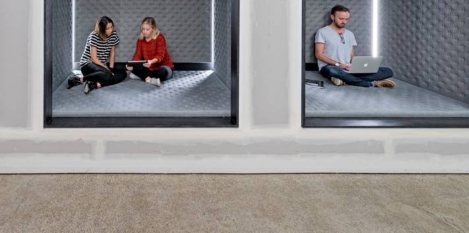March 15, 2019
How artificial intelligence changes occupant experience
 If a robot received a signal that you had entered the building, it might bring you a fresh cup of coffee just as you reach your desk. If the front door recognised your face, it might unlock itself for you without requiring you to use a fob to gain access. If your desk knew you had left for the day, it might offer itself to a colleague who is looking for a quiet workspace. Throughout history, the interaction of humans with technology has been pretty much one-sided. We turn our technologies on and off, operate and guide them in their tasks, and use our senses to monitor their functioning and detect anomalies.
If a robot received a signal that you had entered the building, it might bring you a fresh cup of coffee just as you reach your desk. If the front door recognised your face, it might unlock itself for you without requiring you to use a fob to gain access. If your desk knew you had left for the day, it might offer itself to a colleague who is looking for a quiet workspace. Throughout history, the interaction of humans with technology has been pretty much one-sided. We turn our technologies on and off, operate and guide them in their tasks, and use our senses to monitor their functioning and detect anomalies.



































March 14, 2019
Mobile working is a recipe for business success
by Sally Elliott • Comment, Technology, Workplace design
More →